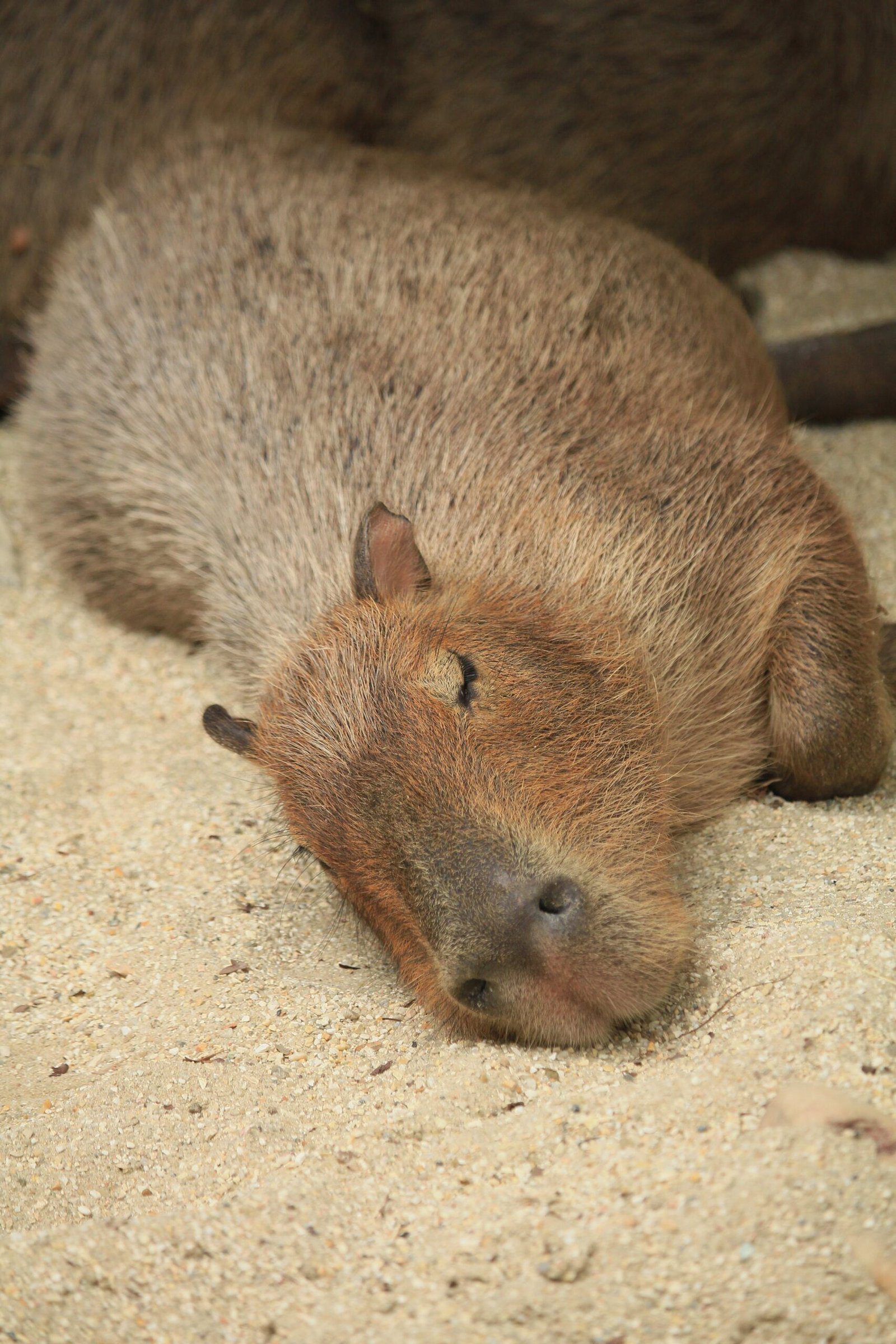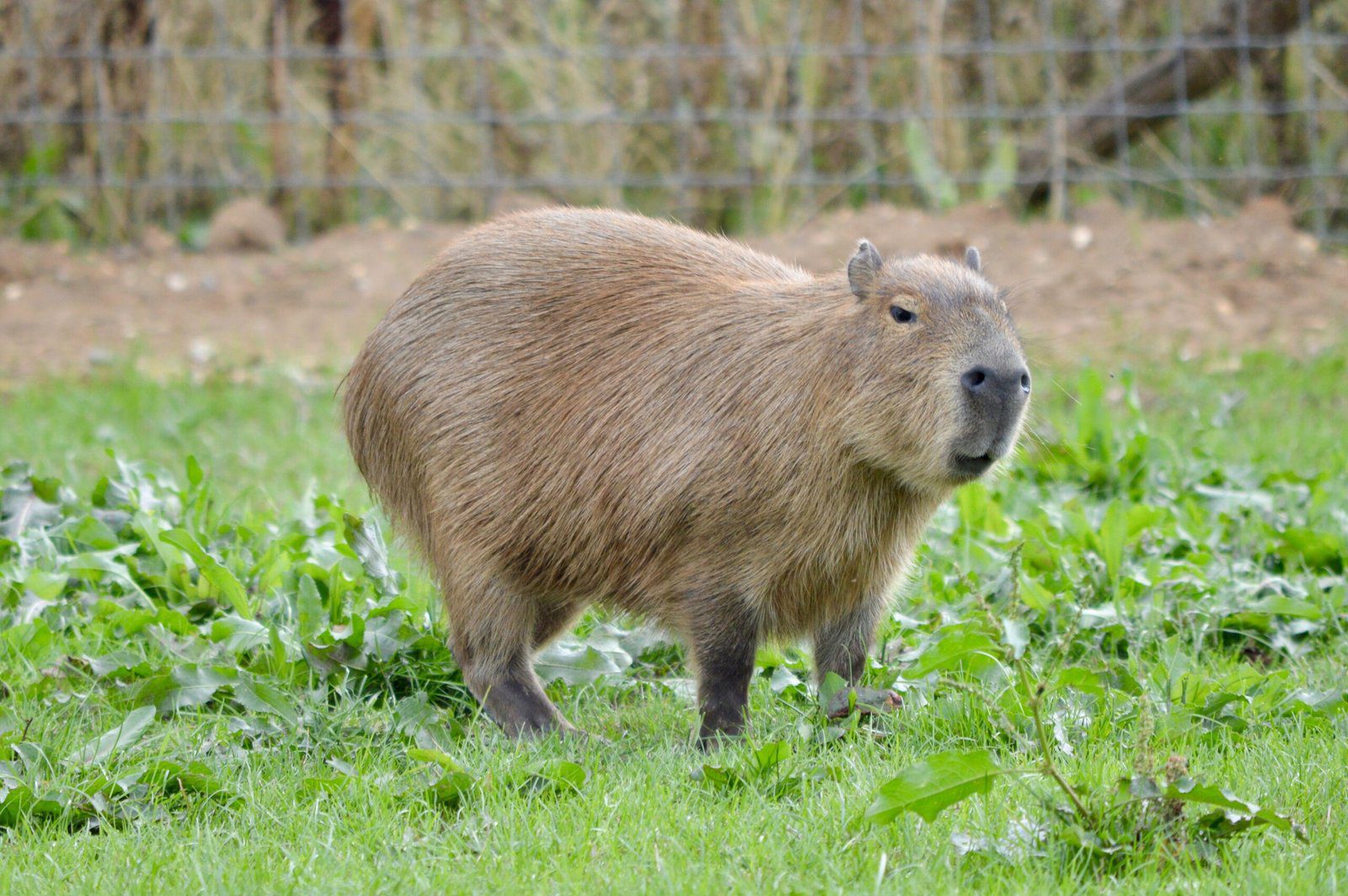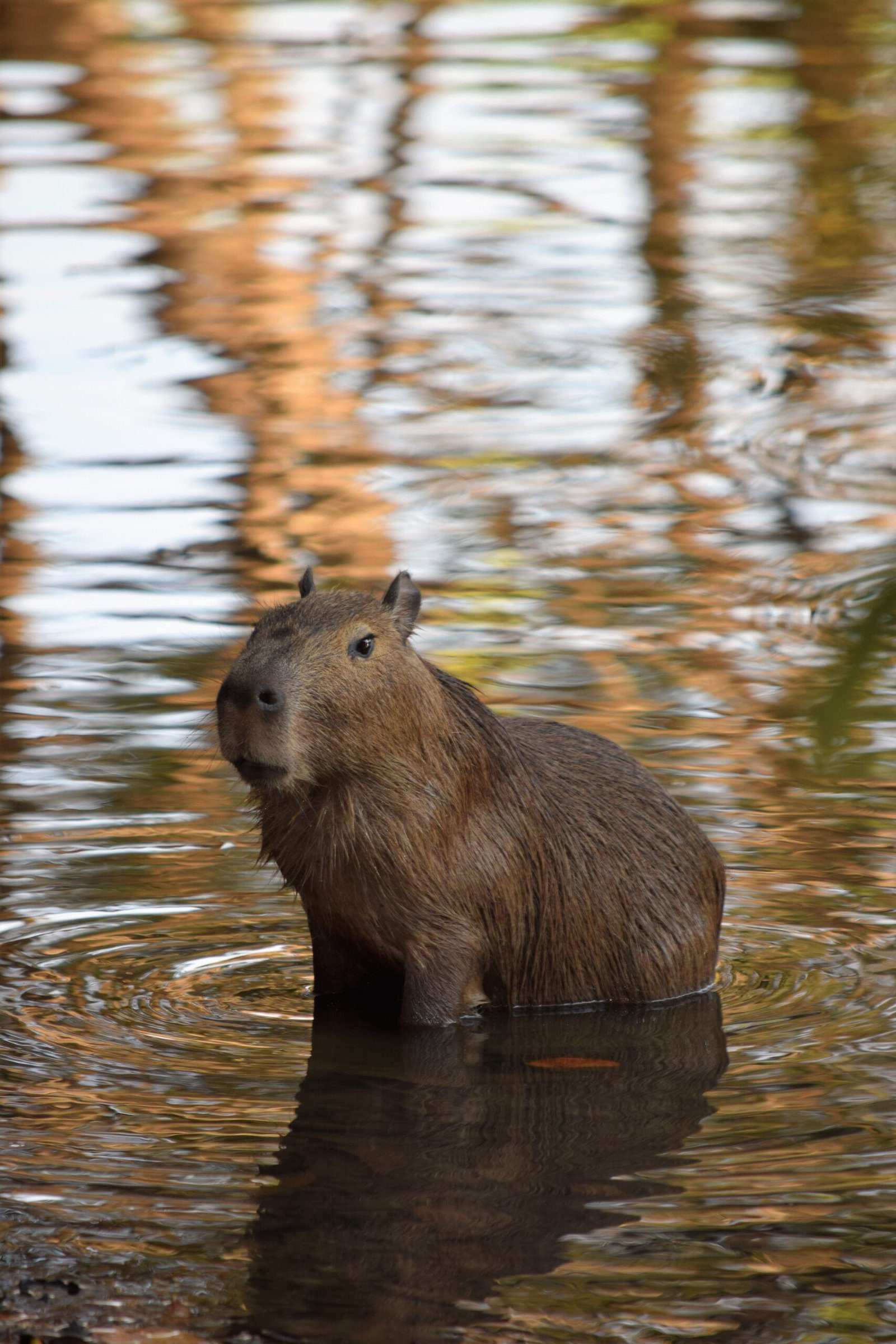Table of Contents
So, you've been intrigued by these adorable, giant rodents known as capybaras and can't help but wonder if it's possible to make one your very own pet. Well, you'll be happy to know that yes, it is indeed possible to own a pet capybara, but before you rush off to find one, there are a few legalities to consider. While some countries and states have strict regulations on exotic pet ownership, others are more lenient when it comes to these lovable creatures. Read on to explore the fascinating world of capybaras as pets and discover whether you can legally welcome one into your home.

Laws and Regulations
Federal Laws
When it comes to owning exotic pets like capybaras, it is important to be aware of the laws and regulations surrounding their ownership. At the federal level, there are no specific laws that address capybaras as pets. However, it is essential to check with the U.S. Fish and Wildlife Service (USFWS) to ensure compliance with any applicable regulations, especially if the capybara is imported from another country.
State Laws
While there are no federal laws specifically prohibiting the ownership of capybaras, it is crucial to familiarize yourself with the laws and regulations of your state. Many states have their own legislation regarding exotic animals, including capybaras. Some states may require a permit or license, while others may completely ban the ownership of capybaras or require certain conditions to be met.
Local Laws
In addition to federal and state laws, it is also necessary to consider local laws and regulations. Cities and counties may have their own ordinances regarding the ownership of exotic pets, including capybaras. These local laws can vary widely, ranging from complete bans to specific permit requirements or restrictions on the number of animals allowed. Therefore, it is essential to research and understand the regulations in your specific locality before considering owning a pet capybara.
Capybara as Exotic Pets
Capybara's Classification
Capybaras (Hydrochoerus hydrochaeris) are the largest living rodents in the world and are native to South America. They are semi-aquatic animals and are well-known for their friendly and sociable nature. Capybaras are classified under the order Rodentia and belong to the family Caviidae. Despite their size, they have become increasingly popular as exotic pets due to their calm temperament and unique appearance.
Challenges of Owning a Capybara
While capybaras may seem like interesting and lovable pets, it is essential to consider the challenges associated with owning them. One significant challenge is their size. Capybaras can grow up to 4 feet in length and weigh over 100 pounds, requiring ample space and specialized accommodations. They also have specific dietary and socialization needs, which can be demanding for an owner. Additionally, capybaras have a long lifespan of up to 12 years in captivity, necessitating a long-term commitment.
Reasons for Ownership Restrictions
The restriction and regulation of capybara ownership are primarily in place for the well-being of both the animals and the general public. Capybaras have specific care requirements that not everyone may be equipped to meet. Additionally, they are not domesticated animals, and their needs differ significantly from traditional pets. Ownership restrictions aim to prevent animal mistreatment, ensure public safety, and protect native ecosystems from potential harm caused by the introduction of non-native species.

Obtaining a Pet Capybara
Legal Requirements
Before considering obtaining a pet capybara, it is crucial to understand the legal requirements associated with their ownership. These requirements may vary depending on the jurisdiction, but typically include obtaining the necessary permits or licenses. It is necessary to consult with local authorities, such as animal control or wildlife agencies, to determine the specific legal requirements in your area. Failure to comply with these legal requirements may result in fines, confiscation of the animal, or other legal consequences.
Captive-Bred Capybaras
One common way to obtain a pet capybara is through reputable breeders who specialize in breeding and raising captive-bred capybaras. Captive-bred capybaras are individuals that have been born and raised in captivity, often with a focus on socialization and acclimation to human care. Working with a reputable breeder ensures that the capybara is healthy, well-cared for, and has been bred ethically.
Importing Capybaras
In some cases, individuals may choose to import capybaras from other countries. However, importing capybaras can involve additional legal requirements and regulations. When considering importing a capybara, it is imperative to research and comply with all applicable laws and regulations, including those from the USFWS and any other relevant international, federal, state, and local authorities. Importing animals without proper documentation and permits can lead to serious legal consequences.
Permitting and Licensing
Exotic Animal Permits
In many states, the ownership of exotic animals like capybaras requires obtaining an exotic animal permit. These permits aim to ensure that the owners are knowledgeable about the specific needs and requirements of the animals they intend to keep. To obtain an exotic animal permit, one may need to provide detailed information about their facilities, such as the cage or enclosure setup, as well as demonstrate the ability to meet the animal's dietary, behavioral, and veterinary needs.
Special Use Permits
Depending on the intended use of the capybara, such as educational presentations or conservation programs, one may also need to apply for a special use permit. These permits allow individuals or organizations to use the capybara for specific purposes or activities beyond personal ownership. Special use permits often require additional documentation, such as a detailed plan of how the animal will be used and the steps taken to ensure its safety and well-being during such activities.
Facility Licenses
In some jurisdictions, owning a pet capybara may also require obtaining a facility license. These licenses are typically applicable to individuals or organizations that keep multiple exotic animals or operate facilities where capybaras are kept and displayed to the public, such as zoos or sanctuaries. Facility licenses help ensure that adequate housing, care, and safety measures are in place to protect both the animals and the public.

Cage and Habitat Regulations
Minimum Space Requirements
Capybaras are highly active animals and require ample space to roam, play, and exhibit natural behaviors. The cage or enclosure should be large enough to allow the capybara to move around comfortably. The minimum recommended space for a pet capybara is generally at least 100 square feet per animal, but larger enclosures are even better. It is crucial to check local regulations and guidelines to ensure compliance with specific minimum space requirements.
Avoiding Escape
Given their size and ability to swim, capybaras can be adept at escaping from enclosures if the proper precautions are not taken. Fencing should be secure and carefully designed to prevent any potential escape routes. A recommended fence height is at least 3 to 4 feet, with an overhang or electric wire added as an extra deterrent. It is important to regularly inspect fences and enclosures for any weak spots or potential escape routes and promptly address them.
Environmental Enrichment
To ensure the overall well-being of a pet capybara, providing adequate environmental enrichment is vital. Capybaras are social animals, so providing companionship by keeping them in pairs or small groups is ideal. Additionally, offering various forms of mental and physical stimulation, such as toys, hiding spots, and access to shallow water for swimming, can help prevent boredom, reduce stress, and promote a healthy and happy capybara.
Feeding and Care
Capybara's Diet
Capybaras are herbivores with a specialized diet consisting mainly of grasses, aquatic plants, and fruits. It is crucial to provide a balanced, nutritionally appropriate diet to ensure the capybara's health. A diet for a pet capybara typically includes high-quality grass hay, fresh vegetables, such as lettuce and kale, and the occasional fruit as a treat. It is essential to consult with a veterinarian experienced in capybara care to establish a suitable feeding plan based on the individual capybara's age, health, and specific dietary needs.
Veterinary Care
Capybaras, like any other pets, require regular veterinary care to ensure their overall health and well-being. Finding a veterinarian with experience in treating capybaras is crucial, as they have unique physiological and anatomical characteristics that require specialized knowledge. Routine veterinary care may include vaccinations, dental exams, parasite prevention, and general health check-ups. Regular veterinary care can help identify potential health issues early on and provide appropriate treatment to maintain the capybara's optimal health.
Socialization Needs
Capybaras are highly social animals and thrive when they have access to suitable companionship. Ideally, capybaras should be kept in pairs or small groups, allowing them to engage in natural social behaviors. If owning multiple capybaras is not feasible, providing opportunities for social interaction with humans through supervised and positive interactions is essential. Socialization helps prevent loneliness, depression, and potential behavioral issues that may arise from a lack of social contact.
Potential Dangers and Risks
Safety Concerns
While capybaras are generally gentle and social animals, they are still large and powerful creatures. It is important to practice caution and have proper safety measures in place when interacting with a pet capybara. Supervision is essential, especially when children or other animals are around, to prevent any accidental injuries. Proper handling techniques should be learned and followed, taking into consideration the capybara's size and individual personality.
Health Risks
As with any pet, there are potential health risks associated with owning a capybara. Capybaras can carry various parasites and diseases, some of which can be transmitted to humans. Regular veterinary care, routine parasite prevention measures, and proper hygiene practices, such as regular handwashing, are essential to minimize the risk of disease transmission. Consulting with a veterinarian and following their recommendations for preventive care and health screenings can help ensure the capybara's health and reduce potential risks.
Legal Consequences
Failure to comply with federal, state, and local laws and regulations regarding the ownership of capybaras can have legal consequences. These consequences may include fines, penalties, as well as confiscation of the animal. It is important to stay informed about the specific legal requirements in your area and ensure full compliance to avoid any potential legal issues.
Impact on Native Ecosystems
Capybara in Non-Native Environments
Capybaras are native to South America and have been introduced to certain regions outside their native range. In non-native environments, capybaras can potentially disturb local ecosystems, especially if they escape or are intentionally released into the wild. Their grazing habits and ability to alter habitats may impact native plant species and compete with local wildlife for resources.
Ecological Disruption
When introduced into non-native ecosystems, capybaras can cause ecological disruptions. The excessive consumption of vegetation by capybaras may lead to changes in plant composition and density, affecting the balance of an ecosystem. This disruption can have cascading effects on other organisms within the ecosystem, potentially leading to population declines or environmental degradation.
Invasive Species Issues
Capybaras have the potential to become invasive species if introduced into environments where they are not native. Invasive species can outcompete native wildlife for resources, disrupt ecosystems, and cause harm to biodiversity. As responsible pet owners, it is crucial to prevent the accidental release of capybaras into the environment and to ensure that they are kept in appropriate and secure enclosures to prevent any negative impacts on native ecosystems.
Alternatives to Capybaras as Pets
Similar Exotic Pets
If owning a capybara is not feasible due to legal restrictions or other considerations, there are several other exotic pets that share some similarities with capybaras. Animals like mini-pigs, degus, or guinea pigs have similar sociable and interactive qualities, albeit on a smaller scale. However, it is important to thoroughly research the care requirements and legalities associated with these alternative exotic pets before considering ownership.
Domesticated Alternatives
For those seeking a sociable and interactive pet without the exotic nature of capybaras, various domesticated pets can provide similar companionship. Dogs and cats, for example, are popular choices for many individuals and families due to their domestication, abundance of information and resources available, and companionship they offer. Domesticated animals may be easier to obtain legally and often have well-established care guidelines.
Educational and Conservation Programs
Rather than owning an exotic pet like a capybara, individuals interested in learning about or interacting with these animals can participate in educational and conservation programs. Many zoos, wildlife sanctuaries, and educational institutions offer opportunities to observe and learn about capybaras and other exotic species ethically. These programs provide a safe and controlled environment for individuals to engage with these animals while promoting awareness and conservation efforts.
Conclusion
Owning a pet capybara can be an exciting and rewarding experience, but it requires careful consideration and adherence to relevant laws and regulations. Understanding the legal requirements, as well as the challenges and responsibilities of caring for a capybara, is crucial to ensure the well-being of the animal and the safety of both the owner and the community. Considering alternative pets or engaging in educational and conservation programs can also offer fulfilling experiences while minimizing potential risks and impacts on native ecosystems. Always prioritize the welfare of the animal and make informed decisions that align with legal and ethical guidelines when considering owning a pet capybara.

